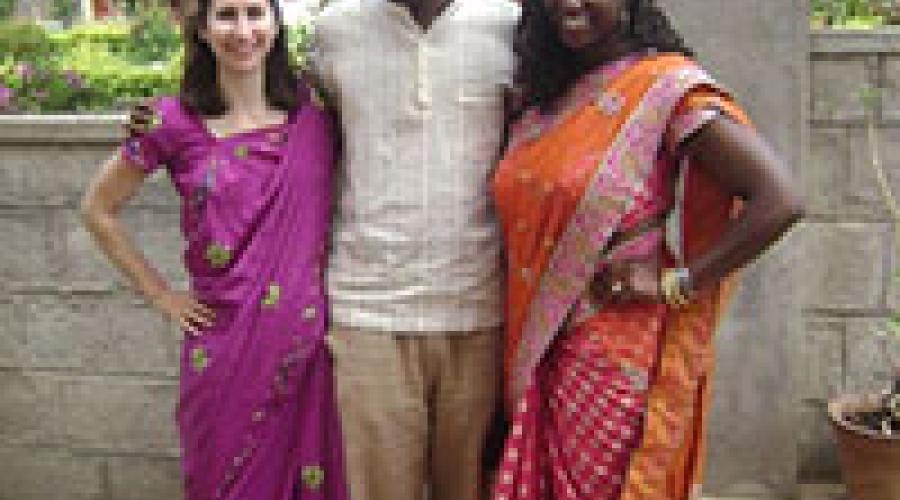
Research in India
Arun Karpur, a research associate with ILR's Employment & Disability Institute, is leading two research studies in India this year.
The projects build on ILR's global service learning program "and will leave an indelible footprint on the lives of people with disabilities in India," said Thomas P. Golden, associate director of the Employment & Disability Institute.
The first project studies the impact of self-help group participation on the livelihood, economic empowerment and community inclusion of people with disabilities.
It is funded by a $75,000 grant from the World Bank through the National Rural Livelihood Mission Program. About 1,000 households in Andhra Pradesh, a southern state in India, are being surveyed.
Karpur said the study, the first of its kind, is designed to evaluate the Ministry of Rural Development's "scaling up" of advocacy and self-help groups for people with disabilities and their families.
It is part of India's effort to reduce poverty among people with disabilities by 2015.
The government of India is considering replicating the project in the country's other 27 states, he said.
A second research project is funded by the K. Lisa Yang Gift to the Employment and Disability Institute. Yang is a 1974 graduate of the ILR School.
The study examines barriers to inclusion of people with disabilities in the Mahatma Gandhi National Rural Employment Guarantee Act in Kolar District, Karnataka. It is the world's largest public funded pay for work program and India's flagship program in reducing unemployment and advancing economic development in underserved rural areas, Karpur said.
Research by the ILR Employment and Disability Institute aims to help guide the state government toward inclusive development. The research is designed to help develop strategies for fulfilling a three percent quota of government-funded jobs reserved for people with disabilities under the United Nations' Conventions on Rights.
The Employment and Disability Institute is implementing these projects in collaboration with the Grassroots Research and Advocacy Movement – India's emerging public policy research institution. It is known by its acronym, GRAAM, and led by Dr. R. Balasubramaniam, who is Cornell's Frank H. T. Rhodes Professor. Known as "Dr. Balu," he said, "GRAAM is committed to building collaborative learning communities in the pursuit of human development."
"The GRAAM-EDI partnership is driven by this vision and we hope to understand and work with people with disabilities in India. The community experiences of GRAAM, combined with the research knowledge of ILR and EDI, will be used to advocate policies both at the state and national levels in India for the people with disabilities."
"This partnership not only provides for building the domain knowledge and expertise of the GRAAM team by EDI, but also helps bring the rigor of scientific research to our work."
Researchers at EDI and GRAAM will collect data from individuals and families of people with disabilities, and the rural employment program's personnel, policymakers and politicians.
As part of the project, ILR student Jeffrey Joseph '15 is conducting a literature review to help GRAAM develop data collection instruments and strategies for advocacy after the research is completed.
This summer, the K. Lisa Yang Gift continues to provide sponsorship for participants in the ILR Global Service Learning Program, in collaboration with non-profit partner Swami Vivekananda Youth Movement in India.
Students begin their time in India in Mysore, Karnataka, with two weeks of training on India's culture, public policy, labor economics and disability studies.
Then, they serve for four weeks at not-for-profit institutions such as the Society for Elimination of Rural Poverty, known as "SERP," in Andhra Pradesh state and organizations that advance workplace inclusion of people with disabilities. Two ILR students, Teresa Danso-Danquah '15 and Catherine Klapheke '15, are working with SERP in India.
Danso-Danquah said, "It has been a great experience working independently on the assigned projects from developing research questions, to searching for credible sources and information across the globe, to analyzing and developing further questions to follow up with our coordinators at SERP."
"I have really enjoyed this process and it has been great to see myself grow into being capable of taking on self-directed work, being accountable with myself and with the organization directors on my progress."


